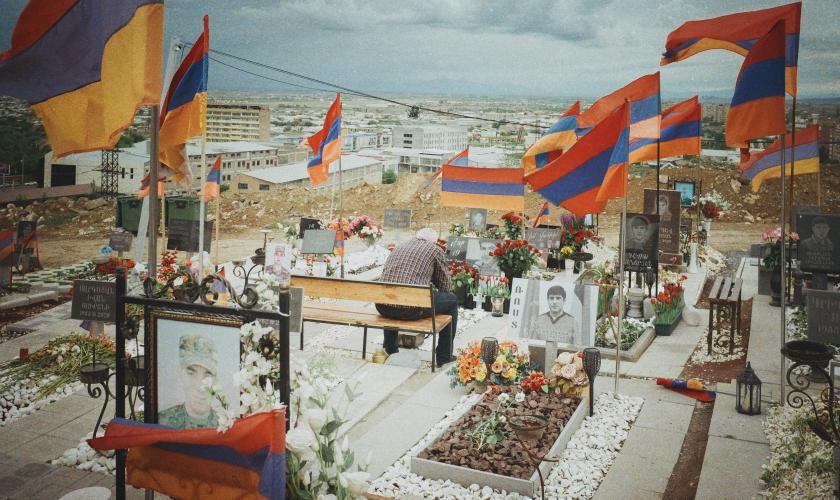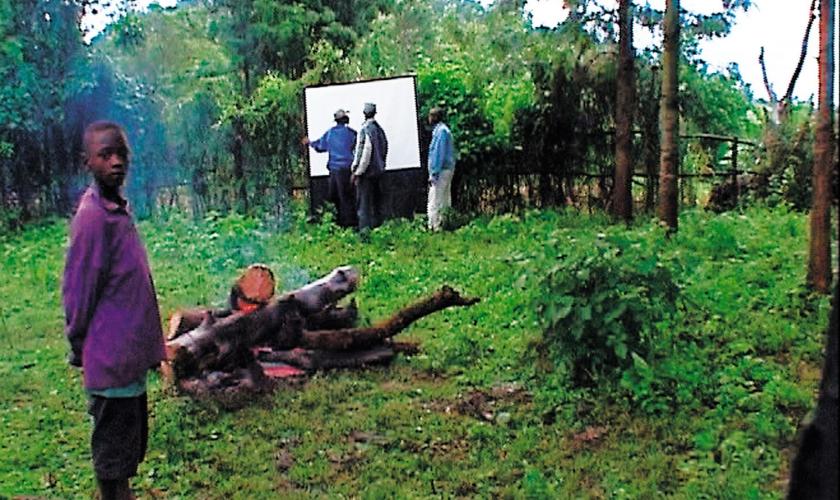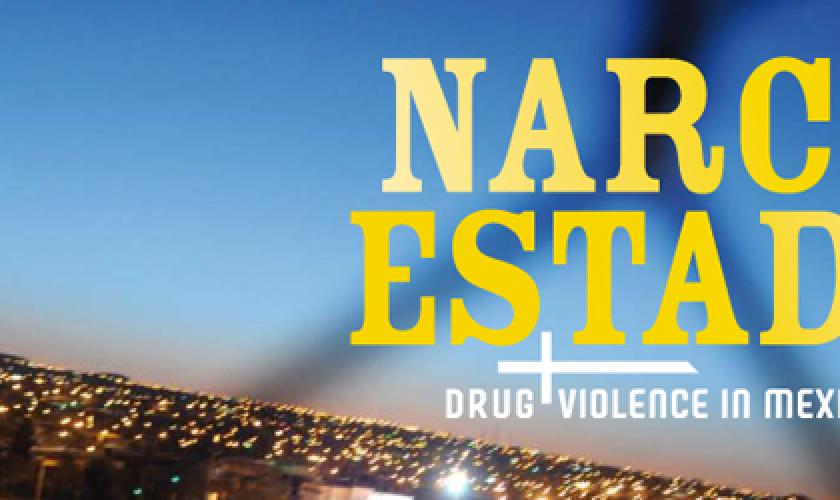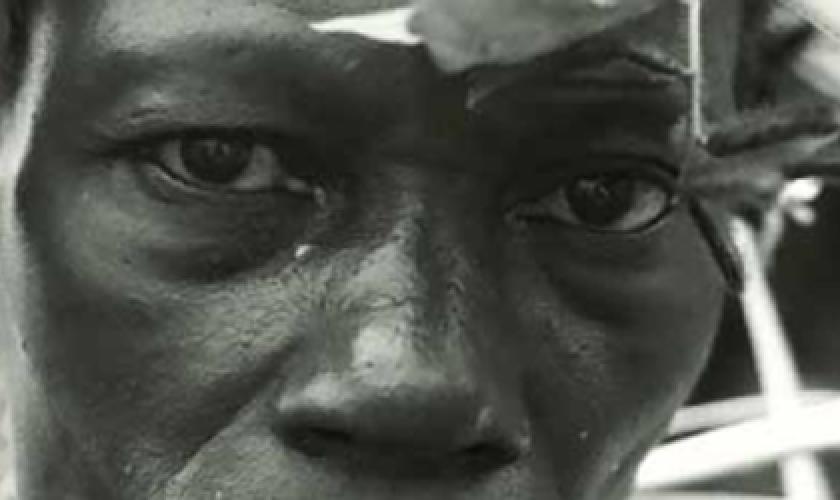STEPANAKERT - Nearly 30 years after Nagorno-Karabakh's declaration of independence, the region's simmering conflicts have flared up again. Nagorno-Karabakh is a country that does not officially exist. Still, it is fought over hard. Journalists Roel Nollet and Marijn Sillis travel to the Southern Caucasus, an ancient crossroads of cultures where the unrecognized states are a stone's throw from each other. Through the rugged Armenian mountains, they travel hundreds of kilometers along the border with Azerbaijan to record the stories of the people at the foot of the Caucasus.
"This is my helmet, my raincoat and my sleeping bag. And I hide weapons everywhere," Surik Ohanjanyan says. He is in charge of the Vorotan Volunteer Forces, a stone's throw from the border between Armenia and Azerbaijan. "If we have to, we'll be ready to fight again in under a minute."
Nagorno-Karabakh is located at the foot of Caucasus. An unrecognized state where mainly ethnic Armenians live. It is not much more than some expansive mountain landscapes, but these landscapes have seen fierce battles. Nearly 30 years after Nagorno-Karabakh's declaration of independence, the region's simmering conflicts have flared up again. Backed by Turkey, Azerbaijan invades the enclave. Drones drop bombs on the capital Stepanakert. At least 70,000 people are displaced. Some set their own houses on fire before they can fall into the hands of the enemy.
Journalists Roel Nollet and Marijn Sillis travel the border between Armenia and Azerbaijan. The military positions of the two countries are close to each other here. "They say they'll shoot us if we cross the border," a shepherd tells us. He has a hard time leading his flock in the right direction. Officially there is a truce, but there is still regular shooting. “For me, the war never ended,” says Sona Margaryan, a local journalist. "New bombs could fall at any moment," Robert also thinks. The retired taxi driver and his son Roman are renovating an empty house because theirs was destroyed by a rocket attack.
The Russians are now in control of Nagorno-Karabakh and foreign journalists are barred. Fortunately, there is still football. Perhaps our responsibility is greater now," says Sego Asryan, the goalkeeper of the national team. All their players were at the front. “You just want to feel like your country has won. Because only then do we exist.”
In six weeks, the conflict has killed more than 5,000 on both sides. Thousands of soldiers lie at the foot of the Caucasus. Their mothers' tears echo across the plains. "If only they weren't heroes, but just our sons.”
Photo: ©Roel Nollet, Marijn Sillis
TELEVISION (in Dutch)
Voetvolk, Vranckx & De Nomaden, Canvas, 20/10/2021.
ONLINE (in Dutch)
Een jaar na de wapenstilstand in Nagorno-Karabach: ‘De oorlog is nooit gestopt’, MO.be, 27/10/2021.





